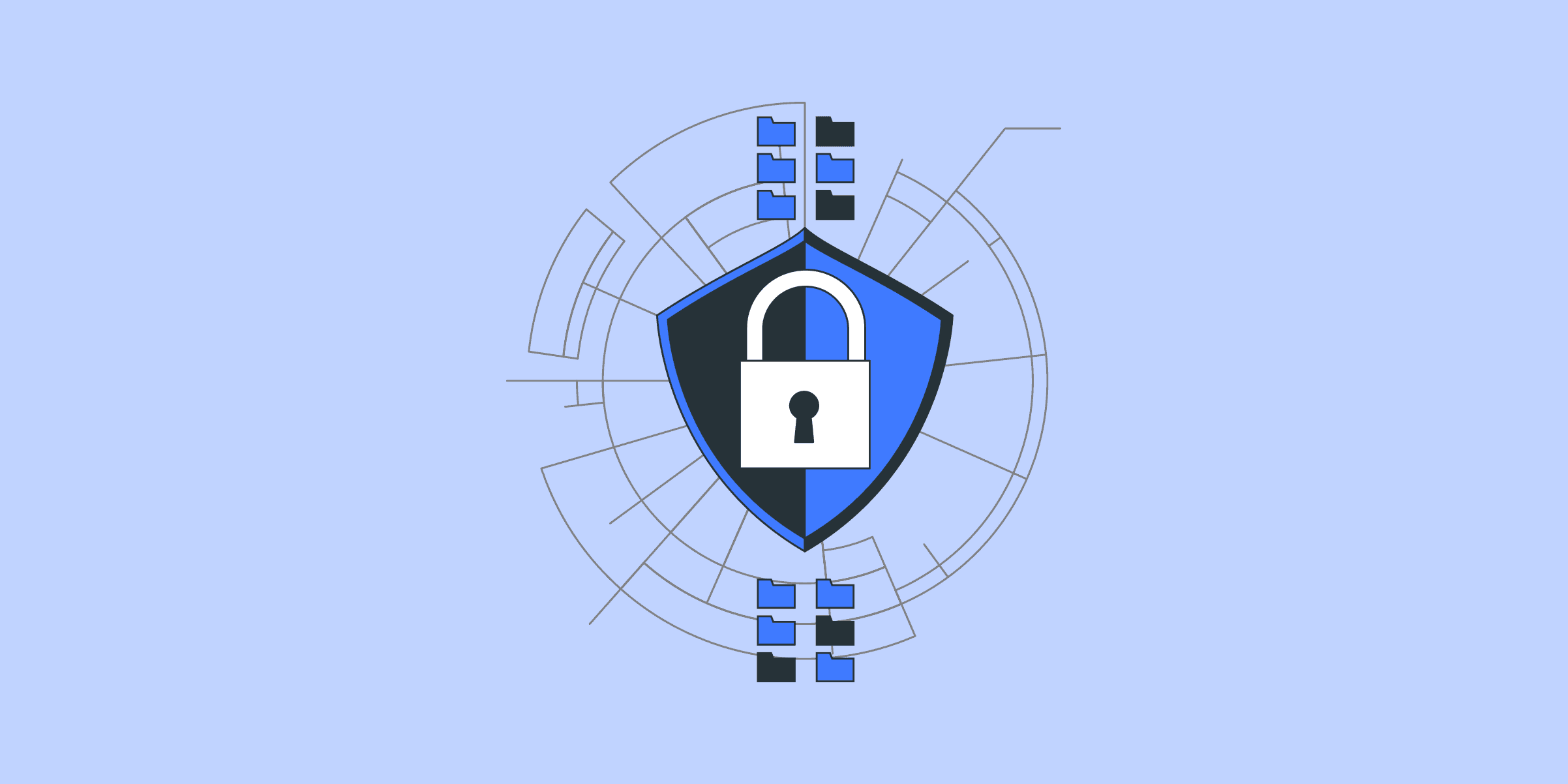海外代理

How to configure LIKE.TG Proxy on Telegram?
Step 1Click Settings – Advanced – Connection type.Select Use custom proxy – Add proxy.Step 2Click Add proxy and select socks5.Then input your ip:port(username:password) and save it.You can find your ip:port(username:password) on dashboard of website or IP2 S5 Manager.If it shows online, it means you can use telegram normally.

LIKE.TG: A Comprehensive Guide to Four Distinct Proxy Packages
Are you looking for a reliable, efficient, and versatile proxy service that offers a range of options tailored to your specific needs? Look no further than LIKE.TG. Today, I'd like to introduce four distinct packages offered by LIKE.TG, ensuring a suitable choice for every user.1. Rotating Residential ProxiesRotating Residential Proxies are billed by both the period and traffic usage. What sets this package apart is the feature of unlimited IP fetch. This means you can access a vast number of IPs without restrictions. It's a plan that's good for a whopping six months, thereby catering to longer-term needs.The package supports both HTTP(S) and SOCKS5 protocols. You can opt for API, enabling you to generate proxy lists through one API link. Alternatively, you can choose User+Pass Auth, which allows you to create credentials freely, use rotating proxies on any device or software without the need for allowlisting IP. This plan supports unlimited concurrent sessions, providing more freedom and flexibility for your online activities.2. SOCKS5 Residential ProxiesWith SOCKS5 Residential Proxies, you're billed by the number of bind times, meaning you can bind again if IP is still online. The plan never expires, providing a long-lasting solution for your proxy needs.This package offers global proxies and an integrated proxy software with a user-friendly interface. It comes with unlimited bandwidth and requests, ensuring nonstop connectivity. You will be using 100% real residential SOCKS5 proxies, ensuring a higher level of security and anonymity online.3.Static Residential ISP ProxiesStatic Residential ISP Proxies are billed by the number of purchased IPs and the plan period. The stand-out feature of this package is its unlimited bandwidth, meaning you won’t need to worry about your internet speed slowing down.You will have access to over 100,000 static HTTP(S) and SOCKS5 proxies. They're dedicated, private, fast, and provide nonstop proxy service. The high anonymity feature ensures your identity remains hidden. This plan delivers the best comprehensive performance, making it a perfect choice for those seeking the optimum proxy experience.4.S5 Unlimited ProxiesS5 Unlimited Proxies is a unique package where billing is based on the plan period. This package stands out with its unlimited offerings: IPs, bind times, traffic, and requests.The proxies support both HTTP(S) and SOCKS5 protocols. The feature of multiple purchases time added allows you more flexibility. Moreover, you can use 1 IP for 24 hours, and you can use it again if it remains online. It's perfect for large-scale projects thanks to its unlimited bind times, IPs, traffic, and requests.In conclusion, LIKE.TG offers diverse proxy packages that are tailor-made to meet various user needs. Whether you're looking for a rotating residential proxy, a SOCKS5 residential proxy, static residential ISP proxies, or unlimited S5 proxies, LIKE.TG has got you covered. Remember, your choice should align with your specific requirements for the best experience.

Mastering Dynamic Residential Proxies: A Detailed User's Guide from Setup to Implementation
In this digital age, understanding and effectively utilizing residential proxies has become an essential skill. Whether you're new to this field or looking to refine your expertise, this article will provide a detailed walkthrough, starting from the point of purchase all the way to application. Here, we demystify the concepts of IP sourcing, authorization users, IP rotation modes, and effective testing of your proxy environment. Join us as we delve into these techniques, providing you with the essential knowledge and skills needed to master the use of dynamic residential proxies. Let's embark on this enlightening journey together!Please allow us to introduce to you the detailed usage method of the dynamic rotatingresidential proxy. After you purchase the trafficplan, click on Get Proxies.First, how to obtain and use proxies in API-Whitelist/Allowlistmode:The API mode offers national-level location targeting, supporting the selection of HTTP(S), SOCKS5.When you click to generate the API link, it will prompt you to add the current IP to the whitelist/allowlist, click confirm.If other deviceswith differentIP need to use the API mode proxy, please add the IP address in the IP Allowlist before using it.Clicking open link will generate a proxy list. Copy one of them and paste the IP:port into the anti-detect browser to test the IP connectivity.Proxy successful!Points to note:· In API mode, the IP will automatically switch, changing with each request. At the same time, the default automatic switch time for each IP is 5 minutes.· You can flexibly apply the API link to other applications or script codes. For instance, in the following anti-detect browserconfiguration, the API can directly adapt to the anti-detect browser. When applying, input the quantity as 1.The adaptation of the API extraction proxy with the anti-detect browser is successful!Username+Password Authentication1 Choose your proxy IP settingsin this area, supporting selection by country, state, city or country, ISP level.2 Select the authorized user you need to use here. The authorized account will be used to generate proxy information, creating an authorized account is an essential step in password authentication mode.3/7 Choose the IP rotation mode here. You can choose the random IP mode or sticky IP mode. In the random IP mode, the proxy will change the IP with each new connection request or at random intervals. In the sticky IP mode, you can set the session duration of the proxy to 1-30 minutes. When the duration ends, the IP will automatically switch or you can manually change the IP by editing the session code.4/9 This is the most important information you need when applying the proxy, it is basically used in various scenarios.5 This is your CURL test command. You can use this command to test whether the current environment is applicable and test the connectivity of the current proxy. Only when the CURL command tests out the IP information can it prove that your current network environment and IP proxy are normally available.6 This is the area for batch generation of proxy lists. You can choose the order of IP:PORT:USERNAME:PASSWORD, directly copy the generated result and paste it on the program where you need to apply the proxy, which is convenient and quick. At the same time, in the delayed IP mode, this batch generation function will automatically randomly generate session characters for you, and each line is a different IP.8 IP=pr.LIKE.TG.com; Port=6001 Press Win+R to enter cmd, enter nslookup pr.LIKE.TG.com to get the IP address format. Here you can query the current IP address form under the main domain. After finding the IP address, it can replace the domain form to use the proxy.In conclusion, navigating through the LIKE.TG’s dynamic rotatingresidential proxies doesn't have to be daunting. With a careful understanding of their operation, from purchase to application, users can maximize the potential of these tools. By observing the proper steps of using API whitelist/allowlistmode and adopting the right IP rotation modes, we can truly harness the power of proxies. Always remember to verify your environment and proxy connectivity using the CURL command, and utilize the one request one IP switchfunction for efficiency. With these in place, rest assured, your journey to achieving a successful and smooth proxy experience will be within reach.

Enhancing User Experience: Unique Features and Services of LIKE.TG
The landscape of proxy servers can often be challenging to navigate, but with LIKE.TG, we have redefined this journey by prioritizing user experience and efficiency. Our distinguishing features – the Referral Program, the Reseller Program, and our robust customer service – are designed to empower users while offering unprecedented convenience and rewards. Referral Program: Rewarding Advocacy At LIKE.TG, we value the power of community. That's why we have introduced the Referral Program, which encourages users to share their unique referral links or codes. Every new user registered via these links or codes becomes a permanent referral of the original user. With each purchase made by these referrals, the referrer earns proxy rewards ranging from 5% to 10%. The transparency of the program ensures users have clear visibility of their referral and order lists within their Dashboard, promoting consistent awareness of potential rewards.Reseller Program: Empowering Proxy SalesThe Reseller Program is specifically designed for users engaged in proxy sales. By offering unique discount codes, we enable our resellers to earn commissions on their sales. The Dashboard conveniently displays all information related to these codes, ensuring our resellers have full control over their activities. For increased convenience and efficiency, we have incorporated a balance transfer feature that allows resellers to transfer IPs freely to facilitate their sales processes.Customer Service: Attentive and AccessibleIn addition to our innovative programs, we also pride ourselves on our customer service. Our contact information is readily available at the bottom of every page, and we have deployed automated response bots to answer general queries and direct more complex issues to our human support staff. Our instant customer service is also available on Telegram to resolve various questions.We've created detailed FAQs and proxy guides to help users find answers to common issues and learn how to make the most of our services. We maintain a strong presence across social media platforms to keep our users informed about the latest updates and announcements. This commitment to customer service underscores our mission to support our users at every step of their proxy journey.LIKE.TG sets the bar high by offering over 90 million ethically sourced residential IPs worldwide, compatible with HTTP(S) SOCKS5 protocols, and supports country, city, and ASN-level IP selection. Our professional proxy management tool, IP2 Proxy Manager, further simplifies the process, allowing our users to manage and control their proxies efficiently.At LIKE.TG, we blend cutting-edge technology, user-centric features, and exceptional customer service to create a proxy platform that exceeds your expectations. Experience the power of proxies like never before, only with LIKE.TG.

How to configure Static ISP Proxy on IP2 S5 Manager?
Step 1Open IP2 S5 Manager and click ISP pannel.Click on the green circle to check if your local IP supports the use of IP2 S5 Manager.Step 2Add your local IP to IP Allowlist.You can add up to 10 IPs to your IP Allowlist.If you want to get more than 10 whitelist, please contact us.Step 3Right-click on your purchased ip and select Forward Port To Proxy, select a free port to bind ip.Step 4When the binding is complete, click on Port Forward List to copy the bound IP and you will be able to connect to your proxy.Step 5Contect your proxy on fingerprint browsers or extensions or other softwares.

Mastering Digital Hurdles: Understanding the Essential Use Cases of Proxy Servers
IntroductionWith the increase in the sophistication of digital interactions, privacy and accessibility have become prominent concerns. Proxy servers have emerged as key players in this digital landscape, providing solutions to overcome these challenges. This article aims to outline the various use cases for proxies and how they can enhance your digital experience.Enhancing Personal PrivacyAt the core of the digital age is the concern for personal privacy. Proxy servers, like LIKE.TG, add an extra layer of security by masking your IP address, making it harder for malicious entities to track your online activities. Whether you're surfing the web at home or checking emails in a coffee shop, proxy servers ensure your online identity remains private and secure.Accessing Geo-Restricted ContentHave you ever been denied access to content because it's not available in your country? Proxy servers can bypass these restrictions by changing your online location, allowing you to access content from around the globe. From streaming your favorite series on Netflix to exploring international e-commerce sites, proxy servers break down geographical barriers.Circumventing Website Blocks and RestrictionsSchools, workplaces, and even some countries often implement restrictions on web access. Whether you're trying to access social media platforms like Instagram or Reddit, or wishing to listen to Spotify, proxy servers can be the key to unlock these digital restrictions.Acquiring Limited Edition ItemsThe race to buy high-demand, limited-edition items, such as rare sneakers or concert tickets, can be a frantic experience. Using proxy servers can greatly enhance your chances of success by enabling you to operate from multiple IP addresses, increasing the number of attempts you can make.Facilitating Business OperationsBusinesses can greatly benefit from the capabilities of proxy servers. Proxies can facilitate web scraping for data collection, enable market research by accessing localized content, monitor SEO metrics, and even help prevent ad fraud. Companies that manage multiple social media accounts can also use proxies to prevent account limitations or bans.ConclusionIn our increasingly digital world, proxy servers have become an indispensable tool, offering solutions to a myriad of challenges. From personal use cases like enhanced privacy and accessing geo-restricted content, to business operations such as data scraping and market research, proxies are shaping the way we interact with the digital world. Understanding these use cases can enable you to make the most out of your online experiences. Dive in, and explore the possibilities that proxy servers can unlock for you.

Mastering LIKE.TG Static Residential ISP Proxies: A User's Guide to Three Key Applications
As the digital world continues to evolve, proxies have become an essential tool for ensuring online privacy, circumventing geo-restrictions, and facilitating a secure internet connection. LIKE.TG Static Residential ISP Proxies offer not only a reliable and high-speed internet connection but also an undetectable one, thanks to their association with legitimate residential ISPs. In this tutorial, we will explore three practical applications of the LIKE.TG Static Residential ISP Proxies to make the most out of your online activities.(MUST DO FOR ALL STATIC ISP PROXY USERS)1.Random RedeemClickRedeembutton to get the latest buying static ISP proxy IP, this action will get aRANDOMIP address from the buying location.2.Free Selecting As You WantStep 1:*Download and OpenIP2 Proxy Manager, click ISP, Add your local IP to IP Allowlist, choose the Region and Duration you just bought static proxy plan.(For example, you just bought Virginia 1 Month)Step 2:You will find all the available Virginia Static ISP proxies, choose one IP, right click to bind one portIn ISP List, find the IP, the IP balance IP deducted one. You can renew it if you want.Step 3:Prepare connecting resources, You have 3 methods to use the Static ISP Proxy, they are IP Allowlist Mode(NO NEED IP2 PROXY MANAGER OPEN), User+Pass Auth Mode(NO NEEDIP2PROXY MANAGEROPEN)and IP2 Proxy Manager S5 Mode(IP2PROXY MANAGER MUST OPEN ON)Login your account to LIKE.TG Official Website, find the curl testing command:PreparationPlease pay attention to the key information in the red box above. These are the important points you need to focus on when using Static Residential ISP Proxies.Some notes you have to be clear:Whitelist authentication(Add Current IP to Allowlist)→IP:2000Credential authentication→IP:2333:Username:PasswordISP Proxy Username:Password can be added fromAuth-User ListConnectivity Test(IP is your buying IP, User:Pass are created by you):Whitelist Auth:Win+R→cmd→curl -x IP:2000 ipinfo.ioUser+Pass Auth:Win+R→cmd→curl -x IP:2333 -U "User:Pass" ipinfo.ioMethod 1 IP Allowlist ModeFirst of all, add your current IP to IP:AllowlistThen, you can directly use copy and paste IP:2000 to the place you want to apply proxy:Method 2 User+Pass Auth ModeIn auth-user list, create a username and password, directly apply them by IP:PORT:USER:PASSMethod 3 IP2 Proxy Manager S5 ModeNow come to IP2 Proxy Manager, you will find your local IP already added to Allowlist, then right-click the Static IP and bind a port you want.Open Port-forward-list, click copy. Then Apply the proxy, success!Curl TestNow we use three methods’curl test commands to have a test, this action can make sure your IP can work normally in your current internet environmentWhitelist Auth:Win+R→cmd→curl -x IP:2000 ipinfo.ioUser+Pass Auth:Win+R→cmd→curl -x IP:2333 -U "User:Pass" ipinfo.ioIP2 Proxy Manager:Win+R→cmd→curl -x 127.0.0.1:Port ipinfo.ioConclusionUnderstanding and utilizing LIKE.TG Static Residential ISP Proxies effectively can significantly enhance your online experiences. From maintaining privacy and security to accessing geo-restricted content, these proxies offer tremendous benefits. Whether you're browsing, streaming, or gaming, follow this guide to makeyour online business unhindered and thriving.

LIKE.TG: Your Gateway to Unrestricted, Secure and Efficient Web Scraping and Unlimited Access
Introduction LIKE.TG stands out with its robust, adaptable, and cost-effective suite of proxy services, featuring over 90 million ethically sourced residential IPs worldwide. This article provides a comprehensive overview of LIKE.TG's services and features.Extensive Proxy NetworkLIKE.TG offers a vast proxy network with a global presence, covering over 220 locations including the United States, United Kingdom, Japan, South Korea, Hong Kong, and many more. Their diverse network allows for tailored solutions, suitable for enterprises with varying data collection and proxy network demands.Convenient Configuration and Control LIKE.TG offers an easy-to-use web page and proxy software for configuring proxies. The IP2 Proxy Manager, their professional proxy management tool, enables efficient proxy configuration and management. It supports country, city, and ASN-level IP selection, with compatibility across various applications, software, tools, and games.Dynamic and Static Residential ProxiesUnderstanding the unique needs of different businesses, LIKE.TG offers both dynamic and static residential proxies. Static residential proxies blend the advantages of residential proxies’ high anonymity with the high uptime of datacenter proxies. Meanwhile, rotating residential proxies offer flexible billing options, unlimited IP fetch, and long-lasting period plans.Comprehensive Global CoverageLIKE.TG's impressive residential IP resources allow businesses to bypass geo-restrictions and access content globally. Their proxies support both HTTP(S) SOCKS5 protocols, with fetching options through API or user+pass authentication. Unlimited Access and High PerformanceWith LIKE.TG, customers can enjoy unlimited bandwidth, requests, and concurrent sessions. The residential SOCKS5 proxies are 100% real, offering high anonymity and comprehensive performance. Furthermore, LIKE.TG provides over 100k static HTTP(S) SOCKS5 proxies and dedicated private non-stop proxies.Versatile ApplicationLIKE.TG’s services have a wide range of applications. They can be used in brand protection, ad verification, SEO, price integration, academic surveys, social media management, browser fingerprinting, online gaming, e-commerce, data collection, and more.Customized Proxy PlansLIKE.TG understands that different users have different needs. Therefore, they offer custom plans alongside their pre-designed ones. Customers can contact customer service to get recommendations or quotes for custom plans.ConclusionIn a nutshell, LIKE.TG provides robust and versatile proxy solutions, facilitating unrestricted, secure, and efficient internet access. Whether you are a small business or a large enterprise, LIKE.TG's proxy services can accelerate your online operations while ensuring anonymity and security. Explore LIKE.TG's offerings today and transform your online experience.

Comprehensive Guide to Using SOCKS5 Residential Proxy on IP2 Proxy Manager
Introduction: In the realm of secure and efficient internet browsing, the role of a powerful proxy management system can't be overstated. SOCKS5 Residential Proxy, as one of the offerings on the IP2 Proxy Manager, presents a robust solution for both individuals and enterprises. This guide aims to provide a detailed explanation of how to optimally utilize SOCKS5 Residential Proxy within the IP2 Proxy Manager, covering crucial elements such as the selection of proxy packages, IP address binding, and leveraging the various features of the software.On the IP2 Proxy Manager, there are currently three types of proxy packages available for use, namely: SOCKS5 Residential Proxies, Static Residential ISP Proxies, and S5 Unlimited Proxies. SOCKS5 Residential Proxies:First, you need to confirm your local IPv4. The IPv4 address displayed at the Local Proxy is the PC's IPv4 address automatically detected by the software (you can also manually look it up: Win + R → cmd → ipconfig). This IPv4 address will be used as proxy information inputted into the proxy configuration when using mobile (you cannot apply127.0.0.1on Mobile devices, although 127.0.0.1 can also serve as a proxy IP with the same effectof your own IPv4on the PC). Local IP displays the IP of the current network environment detected by the software. If the detection button is green, it indicates that the current network environment is normal and usable. If your network environment changes, it is recommended to click the network environment detection button to confirm the environment is normal before proceeding to the next proxy operation.In TodayList, you can view the IPs that have been bound to ports in the past 24 hours. It supports binding to different ports and can be added to the favorites.Each binding deducts one IPbalance. Each binding starts the timer from the BindTime, and can last for up to 6 hours. After 6 hours, binding again will result in one IPfurther charge.If both 'Available' and 'Online' are true, it means that the IP can be used normally within 6 hours afterBindTime;If 'Available' is Falseand 'Online' istrue, it means that the IP has exceeded 6 hours since the last binding and needs to be re-bound to be usable;If 'Online' is False, it means that the IP is offline, and is unusable regardless of whether it is bound or not.In the Favorites section, you can save up to 100 IPs, which is convenient for re-binding after the first BindTime exceeds 24 hours (it can only be re-bound if 'Online' is True).You can also add remarks to the IP routes for the convenience of team collaboration. The IP2 proxy manager software allows you to log into the same account and bind the same IP for simultaneous use on an unlimited number of devices. However, using the same IP on different devices requires separate charges for each device.About API Usage, you can check this web page.LIKE.TG Proxy Manager API GuideWithin the duration of the purchased plan, you can bind and use IPs an unlimited number of times in more than 50 countries, with unlimited traffic and support for HTTP(S) and SOCKS5 protocols.For instructions on how to use Static ResidentialISP Proxies on the IP2 Proxy Manager, please refer to the tutorial page below.LIKE.TG Static Residential ISP Proxy GuideInsettings, you can set the beginning port. It is generally recommended to set the beginning port to less than 65,000, with the maximum number of ports that can be bound at the same time being 500.Conclusion:In essence, mastering the use of SOCKS5 Residential Proxy on the IP2 Proxy Manager ensures that you fully exploit the advantages of this particular proxy package. With features designed to support port switching, IP binding, favorite lists creation, and collaborative operations via the remark functionality, this tool is user-centric and adaptable. Keep in mind that effectively navigating through the intricacies of proxy management becomes a straightforward task when you comprehend its mechanisms. Experience secure and efficient browsing with SOCKS5 Residential Proxy on IP2 Proxy Manager!

Ultimate Guide to LIKE.TG's Traffic Unlimited Residential Proxies
Welcome to our comprehensive guide to traffic unlimited residential proxies. In today's digital landscape, proxies play a crucial role in ensuring privacy, security, and unrestricted access to online content. In this guide, we will explore the features, benefits, and practical usage of traffic unlimited residential proxies. Whether you are a novice or an experienced user, this guide will equip you with the knowledge and tools to harness the full potential of residential proxies.First of all, make sure your current IP is in IP allowlist,Both API and User+Pass Auth must do this IP ALLOWLISTToday, we will introduce the features and usage methods of our Unlimited Traffic Rotating Residential Proxies.Benefits of our Unlimited Residential Proxy Package:Infinite Traffic: Enjoy the freedom of unlimited bandwidth, ensuring seamless browsing, data collection, and high-volume tasks without worrying about usage limits.Unlimited IPs: Gain access to an extensive pool of real residential IP addresses, enabling you to switch between IPs effortlessly and maintain a diverse online presence.Unlimited Requests: Harness the power of unlimited concurrent requests, allowing you to gather data, scrape websites, and perform various tasks with exceptional speed and efficiency.Real Clean Residential Proxies: Trust in the authenticity and cleanliness of our residential proxies, providing you with reliable and legitimate IP addresses sourced from real residential networks.The main difference between this type of proxy and Dynamic Rotating Residential Proxies is that you cannot specify a specific geographic location for usage. However, the overall usage methods are quite similar.First, let's begin with the API mode. While the API mode doesn't provide national-level location targeting, it does support the selection of HTTP(S) and SOCKS5 protocols. Start by selecting the desired proxy protocol and adding your current IP address to the whitelist. After completing these steps, you will be able to generate a list of proxies.If you intend to use the API mode proxy on other devices with different IP addresses, please make sure to add those IP addresses to the IP Allowlist before utilizing the proxy. By clicking on the open link, you will be able to generate a list of proxies.Proxy setup successful!Here are a few important points to keep in mind:- In API mode, the IP address will automatically rotate with each request. The default rotation time for each IP is set to 5 minutes.- You have the flexibility to integrate the API link into other applications or script codes. For example, in the configuration of an anti-detection browser, the API can be directly adapted to the browser. When applying, enter the quantity as 1.User+Pass AuthenticationFirst of all, make sure your current IP is in IP allowlist, Both API and User+Pass Auth must do this IP ALLOWLISTWe can test the IP proxy using the curl command. Let's make two requests to the proxy and observe the IP addresses returned. We have the function "each request changes IP" working correctly, we see two different IP addresses in the responses.After checking the two IPs on an IP detection website, we can confirm that theyare real ISPtype IPs, excellent!Here are some additional tips for you:1. Select the authorized user: Choose the authorized user that you want to use. Creating an authorized account is crucial for username-password authentication mode. You can create an authorized account by clicking on "Create Auth Users" or "Auth-User List" on the left side.2. Choose the IP rotation mode: Decide whether you want to use random IP mode or sticky IP mode. In random IP mode, the proxy will change the IP with each new connection request or at random intervals. In sticky IP mode, you can set the session duration (1-30 minutes) after which the IP will automatically switch. You can also manually change the IP by editing the session code.3. HOST, PROXY USERNAME, and PROXY PASSWORD: These are important pieces of information required when applying the proxy in various scenarios.4. CURL test command: Use this command to test the applicability of the current environment and the connectivity of the proxy. Only when the CURL command successfully retrieves the IP information, can you confirm that your current network environment and IP proxy are functioning correctly.5. Batch generation of proxy lists: This feature allows you to generate proxy lists in bulk. You can choose the order of IP:PORT:USERNAME:PASSWORD and directly copy the generated result to use in the program where you need to apply the proxy. Each line in the batch-generated list represents a different IP. In the delayed IP mode, this function will automatically generate random session characters for each line. This makes it convenient and quick to use the generated proxy list.Feel free to reach out if you have any further questions or need assistance!Conclusion: Congratulations! You have reached the end of our comprehensive guide to traffic unlimited residential proxies. We hope this guide has provided you with valuable insights into the world of proxies and their immense potential. Traffic unlimited residential proxies offer you the freedom, security, and flexibility to navigate the online landscape with ease.Remember to always prioritize ethical and responsible proxy usage. Respect the terms of service of websites you visit and comply with local regulations.As you embark on your proxy journey, feel free to explore our wide range of proxy solutions and consult our support team for any further assistance. Embrace the power of traffic unlimited residential proxies and unlock new possibilities in your online activities.Stay connected, protected, and unrestricted with traffic unlimited residential proxies.

Navigating the Digital Labyrinth: An LIKE.TG Guide to Understanding and Bypassing CAPTCHAs
As we traverse the digital world, CAPTCHA (Completely Automated Public Turing test to tell Computers and Humans Apart) often presents a hurdle. With less than a 10% failure rate, it's one of the most reliable anti-bot measures implemented by websites to distinguish between human users and bots. This article offers a comprehensive understanding of CAPTCHA and provides strategies for bypassing these challenges, ensuring a seamless online experience.Understanding CAPTCHAs:Types of CAPTCHAsText CAPTCHAs: These challenges present a series of distorted characters that a user must type to proceed.3D CAPTCHAs: An evolution of text CAPTCHAs, 3D challenges involve more complex character recognition.Math Challenges: These require the user to solve a basic mathematical equation.Image CAPTCHAs: Users must identify particular objects or themes within a grid of images.Invisible and Passive CAPTCHAs: These are hidden within a site's code and operate without the user's awareness, based on human-like behavior.How CAPTCHAs WorkCAPTCHAs are typically triggered by:- Unusual traffic spikes from a single user in a short time span.- Suspicious user interactions, like multiple page visits without scrolling.- Random security checks.Strategies to Bypass CAPTCHAs:1. Avoid Hidden Traps: Learning to recognize and avoid hidden honeypot traps can prevent your activity from being flagged as automated.2. Use Real Headers: By using human-like headers, your browser will not be recognized as a bot.3. Rotate Headers: Regularly changing request headers can make your online activity resemble that of different human users.4. Utilize Rotating Proxies: LIKE.TG's rotating proxies allow you to switch between various IP addresses, masking your real identity and lowering detection risks.5. Deploy Headless Browsers: These tools simulate actual human interactions with a website, making it difficult for CAPTCHAs to detect automated activities.6. Disable Automation Indicators: Erasing automation traces through plugins can further disguise bot-like behavior.7. Mimic Human Behavior: Incorporating random human-like actions can make your scraper look like a real user.The LIKE.TGAdvantage:LIKE.TG’s comprehensive proxy solutions offer a robust and flexible framework that assists users in overcoming various online challenges. Our services extend beyond merely bypassing CAPTCHAs. Here's how LIKE.TG can support you:Custom Solutions: LIKE.TG understands that different industries and projects have unique requirements. Our team works closely with clients to tailor solutions, ensuring optimal performance.Reliable Support: With LIKE.TG, you're never alone. Our dedicated support team is available to assist you in implementing our proxy solutions effectively.Data Security: LIKE.TG is committed to the highest standards of data privacy and security, ensuring that your online activities remain confidential.E-Commerce Excellence: Our proxies enable efficient data extraction from main platforms, allowing businesses to gather crucial market insights.Conclusion:In the ever-changing digital environment, CAPTCHAs represent a significant obstacle. Yet, with an understanding of their mechanisms and strategic application of bypassing techniques, they can be effectively navigated.LIKE.TG’s proxy solutions stand as a testament to our commitment to empowering users in the digital realm. By choosing LIKE.TG, you align with a trusted partner capable of enhancing your online experience. Together, we can make the digital maze a path of opportunity rather than an obstacle course.

LIKE.TG Proxy: Unleashing the Power of HTTP and SOCKS5 Proxies
IntroductionIn the digital age, proxy services have become an indispensable tool for businesses and individuals alike. At LIKE.TG, we offer robust and reliable proxy solutions tailored to your unique needs. With our focus on HTTP and SOCKS5 proxies, we provide end-to-end solutions for data collection, enhancing network security, circumventing geo-restrictions, and more. Harnessing the Power of HTTP ProxiesHTTP proxies, available through LIKE.TG, offer vast customization to meet your distinct requirements. Serving as an intermediary between HTTP/HTTPS-based browsers and the requesting party, these proxies offer an added layer of security, ensuring anonymity while you collect and process data.One significant use of HTTP proxies is 'content caching.' This feature minimizes the strain on servers by locally storing previously retrieved information, reducing the need for new server connections. This is particularly advantageous for businesses that encounter repeated requests for the same data or operate international Content Distribution/Delivery Networks (CDNs).Furthermore, HTTP proxies serve as "digital bouncers," determining which data packets gain entry to your server or database, enhancing network security, especially when internal networks are connected to the internet.Switch to SOCKS5 for High Traffic and FlexibilitySOCKS5 proxies, part of our offering at LIKE.TG, present a versatile solution for varied data requests. Built to handle high traffic volumes, these proxies are excellent for tasks such as load balancing and peer-to-peer activities, including music, video, and data streaming.SOCKS5 proxies are protocol-agnostic, allowing them to establish stable connections using both User Datagram Protocol (UDP) and Transmission Control Protocol (TCP). Their versatility makes them especially useful in navigating firewalls, circumventing blockades, and accessing desired target data, even when your IP has been blacklisted by a target site.Securing Communication with HTTPS ProxiesIf you prioritize secure and encrypted communication, our HTTPS proxy service is the perfect fit for you. These proxies provide end-to-end encryption, ensuring that data exchanged between a client and a server remains secure and protected from unauthorized access. By employing an HTTPS proxy from LIKE.TG, you can have peace of mind knowing that your login credentials, financial data, and other personal information are safe.SOCKS5 Proxies for Speed and AnonymityIf you require fast proxy speeds, anonymity, and flexibility, SOCKS5 is your answer. With lower levels of encryption, it delivers quicker response times. Its adaptability to various protocols like UDP and IPv6 allows traffic to be routed through multiple proxy servers and geo-locations, offering you the utmost anonymity.Choosing Between HTTPS and SOCKS5The choice between SOCKS5 and HTTP/HTTPS proxies largely depends on your specific needs. HTTPS proxies are great for secure web browsing, accessing HTTP/HTTPS websites, web scraping, load balancing, and debugging web application issues.On the other hand, SOCKS5 shines in scenarios that call for bolstering cyber defenses, maintaining anonymity, and streaming web content or sharing files using peer-to-peer technology.ConclusionAt LIKE.TG, we provide versatile and high-quality proxy services to cater to a wide range of applications. Whether you're aiming for secure and encrypted communication, managing high traffic volumes, or bypassing geolocation-based restrictions, our HTTP and SOCKS5 proxies offer efficient and effective solutions.Understanding the nuances of these proxy types can help you make an informed decision that aligns with your specific needs. At LIKE.TG, we're here to guide you through the process, ensuring you have the right tools for your digital ventures. Don't settle for less; choose LIKE.TG for your proxy needs today.

Unraveling the Enigma of Residential Proxies: A Comprehensive Overview
A powerful, yet sometimes overlooked tool in the world of internet technology, residential proxies play an instrumental role in shaping our digital experiences. By bridging the gap between users and servers and maintaining the integrity of internet activities, they offer myriad benefits while also posing challenges.Residential proxies work by routing internet traffic through an intermediary server. These servers assign users a residential IP address provided by an Internet Service Provider (ISP), which then forwards the server requests. Essentially, this process reroutes activities through a different device to relay internet traffic to its destination. In doing so, it masks the original IP address, making it difficult to trace the origin of the requests. Residential proxies are considered more reliable and less likely to be blocked compared to their counterparts, data center proxies. A unique aspect of residential proxies is their ability to rotate IP addresses. This means that for each new connection, a different IP address is assigned, even if the request comes from the same user or device. This feature, although beneficial for genuine users, is often exploited by malicious actors intending to mask their activities.Advantages and Disadvantages of Residential ProxiesThe benefits of using residential proxies are manifold. They are highly scalable, hard to detect, and compatible with all browsers. Their ability to mask IP addresses makes it possible to access geo-restricted content, enables precise location targeting, and provides a layer of data protection. Furthermore, they're useful for data caching and storage, reducing and balancing internet traffic to prevent crashes and protecting networks from viruses.However, residential proxies have their drawbacks. They are costly and offer variable connection quality with unpredictable uptime. Data caching may inadvertently lead to data privacy issues, and while they replace IP addresses, they don't inherently provide encryption, potentially offering a false sense of security. Uses of Residential ProxiesIn a world where privacy and security are paramount, residential proxies offer a safeguard for both individuals and businesses. Individuals can use residential proxies to ensure privacy and avoid being tracked online, while businesses leverage them to access geo-restricted content, perform ad tracking and testing, and monitor competitor pricing and strategies. Cybersecurity professionals use them to simulate potential threats during penetration testing, thereby bolstering their defenses. On the downside, hackers often abuse residential proxies to commit a variety of cybercrimes. These include ad fraud, where bots generate fake clicks and impressions; competitor click fraud, which exhausts a competitor's ad budget; and web scraping, which can lead to content theft or phishing attacks. In addition, fraudsters can deploy scalper bots through residential proxies to purchase high-demand items in bulk, only to resell them at higher prices. This practice creates an imbalance in the market and denies genuine customers the opportunity to purchase these items at the original price. Conclusion: A New Era of Connectivity with LIKE.TG ProxyResidential proxies, while being a remarkable innovation in the digital world, can be a double-edged sword. Offering a range of benefits such as privacy enhancement and geo-restriction bypass, they also pose potential risks when misused. Therefore, understanding their operation and impact is crucial. Enter LIKE.TG Proxy: A leader in providing sophisticated proxy solutions for individuals and businesses alike. With over 90 million real, clean, and anonymous residential proxy IPs covering more than 220 regions worldwide, LIKE.TG Proxy guarantees unrivaled service quality and reach. Whether you require HTTP(S) or SOCKS5 protocols, LIKE.TG Proxy allows easy access to rotating and static residential proxies via an API or user+pass authentication from a webpage. LIKE.TG Proxy provides you with the power to target at the city and ASN level, giving you precise control over your online presence.What sets LIKE.TG Proxy apart is its integrated and powerful proxy software, the IP2 Proxy Manager. This software effortlessly configures global SOCKS5 residential proxies, making it a perfect fit for various applications including brand protection, ad verification, SEO, price integration, academic surveys, and more. LIKE.TG Proxy stands out in the industry with its commitment to unlimited bandwidth and concurrent sessions, offering you a seamless experience and endless possibilities. With pricing options that are as flexible as they are affordable, LIKE.TG Proxy ensures you get the value and quality you deserve.Whether you're a social media manager navigating the labyrinth of online content, a digital marketer optimizing ad placements, an online retailer assessing competition, or even an enthusiastic gamer or sneaker fan, LIKE.TG Proxy provides an extensive network to cater to all your needs. Experience the freedom and security of the digital world like never before with LIKE.TG Proxy — Your partner in seamless global connectivity.

Navigating the World of Proxies: Dedicated vs Shared
Understanding the concept of proxies can be a daunting task due to the sheer volume of information available and the technical jargon involved. This article aims to provide you with a comprehensive and user-friendly guide to dedicated and shared proxies. Proxies, in the simplest of terms, are intermediaries between your device and the internet, and they help cloak your original IP address. There are various types of proxies, but in this article, we'll focus primarily on dedicated and shared proxies.Part I: Unraveling the Power of Dedicated ProxiesAlso known as private proxies, dedicated proxies are exclusively used by a single user. This exclusivity results in several compelling benefits.1. Accessing Protected Websites: Websites often employ anti-scraping techniques to detect suspicious activities, which often lead to blocking the suspected IP. If you use a shared proxy, your chances of getting blacklisted increase due to the uncontrolled usage of the IP address. Dedicated proxies offer full control, thus lowering the risk of being detected as a bot. 2. Bypassing Bandwidth Throttling: With shared proxies, you often have to share your bandwidth, leading to slow connection speed. However, dedicated proxies offer unlimited bandwidth, giving you unhindered data transfer speeds - a crucial aspect if you deal with a significant amount of data. 3. IP Address Rotation: Dedicated proxies offer static IP addresses. This consistency might be helpful for certain tasks, but if you need to frequently change your IP address, dedicated proxies may not be the ideal choice.4.Collecting Massive Amounts of Data: If you need to collect large amounts of data, say for competitor analysis, dedicated proxies can be beneficial due to their consistent, non-rotating IP address. However, be cautious as too many requests can lead to IP blacklisting.Part II : A Deep Dive into Dedicated ProxiesLIKE.TG Dedicated Static Residential ISP ProxiesDedicated proxies' exclusive nature inherently provides a range of benefits, but it also presents a few challenges. 1. Security: The secure nature of dedicated proxies makes them ideal for businesses dealing with sensitive data. In online transactions, protecting data confidentiality is critical, and dedicated proxies offer this benefit. However, be careful about where you purchase your proxies, as some providers may offer 'semi-dedicated' proxies that are shared among a few users.2. Control: With a dedicated proxy, you can control all proxy settings, giving you a highly customizable experience. It lets you tailor the proxy's features according to your needs. This level of control isn't possible with shared proxies. 3. Reliability: Due to their nature, dedicated proxies tend to be more reliable, providing stable and high-speed connections. This is ideal for businesses requiring heavy data exchange.But on the flip side, dedicated proxies come with a few drawbacks:1. Cost: Due to their private nature, dedicated proxies are more expensive compared to shared proxies. This can be a barrier for smaller businesses or individual users.2. Management: The extensive control and customization options require effective management. If not properly handled, a dedicated proxy may lead to performance issues.PartIII: The Allure of Shared ProxiesShared proxies, as the name implies, are utilized by multiple users simultaneously. While this comes with its own set of challenges, shared proxies are not without their advantages.1. Cost-Effectiveness: The most significant benefit of shared proxies is their affordability. The cost is shared among multiple users, making it a cheaper alternative to dedicated proxies.2. Anonymity: Like dedicated proxies, shared proxies also mask your original IP, providing a degree of anonymity. Shared rotating proxies offer even more anonymity by continuously switching your IP address.However, shared proxies come with certain drawbacks. The shared nature can lead to slower speeds due to bandwidth sharing. The 'bad neighbor' effect is also a significant concern, where one user's abuse of the proxy can lead to an IP ban, affecting all users.Shared vs Dedicated Proxies: Making the Right ChoiceThe choice between shared and dedicated proxies boils down to your specific needs. If you're a beginner exploring web scraping, shared proxies, due to their cost-effectiveness, might be the ideal starting point. On the other hand, if your tasks demand high bandwidth and control over IP activities, you'd be better off with dedicated proxies, despite their higher cost. Part IV: The Unseen Aspects of Shared ProxiesShared proxies may be an economical solution, but they also come with their unique strengths and weaknesses.1. Scalability: If you are running smaller operations or scraping public data, shared proxies can be beneficial. You can scale your operations without significantly increasing your costs.2. Ease of Use: Shared proxies generally require less technical knowledge, making them accessible for novice users.However, the shared nature brings in a few challenges:1. Limited Control: Shared proxies offer less control over settings compared to dedicated proxies, which can limit their adaptability to your unique requirements.2. Security Risks: Due to their shared nature, these proxies pose potential security risks. If a user performs malicious activities, it could potentially impact all users sharing the proxy.Remember, proxies are a powerful tool, and when used correctly, they can provide you with unparalleled access to the vast information landscape that the internet is. The key lies in understanding your unique requirements and making the right choice. As the saying goes, knowledge is power, and a good understanding of dedicated and shared proxies is sure to empower you in your internet endeavors.Part V: Use Cases and the Final VerdictBoth dedicated and shared proxies find a range of applications. If you're into ad verification, market research, SEO monitoring, or social media management, dedicated proxies can be beneficial due to their reliable and secure nature.On the other hand, shared proxies are ideal for users who require basic IP masking, casual browsing, or minor scraping tasks. They're also a good fit for users who are just starting out and have budget constraints.As a final verdict, the choice between dedicated and shared proxies depends heavily on your requirements. Your decision should factor in the complexity of your tasks, the level of security you need, the control you want to have over your proxy settings, and of course, your budget. In the world of proxies, there is no one-size-fits-all solution. It's all about finding the right tool for your unique set of needs.Choosing the right proxy is a significant decision that could impact your business's efficiency and security. Hence, take the time to understand your requirements and make an informed choice. As your knowledge and needs grow, so too will your ability to effectively navigate the world of proxies.

Understanding Static Residential ISP Proxies: Comprehensive Analysis and Use Cases
In the digital realm, the notion of proxies is not unfamiliar, serving as essential tools for ensuring privacy, enabling access, and facilitating data aggregation. Among the array of proxy types, Static Residential ISP Proxies (Internet Service Provider Proxies) have carved out a niche by amalgamating the virtues of residential and datacenter proxies. This article explores the depths of static residential ISP proxies, expounding on their underlying mechanics, benefits, and diverse applications.Delineating Static Residential ISP ProxiesTo understand static residential ISP proxies, it is necessary to deconstruct the term. A 'static' proxy denotes an unchanging, fixed IP address, providing the advantage of a persistent online identity. 'Residential' refers to the proxy's authentic residential IP, allocated by an ISP, enhancing its legitimacy. As such, static residential ISP proxies are real IP addresses, linked to a physical location, and remain constant over extended periods.ISP proxies emanate from data centers, bestowing them with superior speed, akin to datacenter proxies, while their residential nature cloaks them in the garb of a typical internet user. This unique combination makes ISP proxies hard to detect and therefore less susceptible to being blacklisted by web servers.The Merits of Static Residential ISP ProxiesThe raison d'etre for employing ISP proxies pivots around their compelling blend of speed, legitimacy, and constancy. By virtue of their residential origin, these proxies are less likely to be red-flagged or blocked, enabling seamless operations requiring trusted, stable IPs. Moreover, their datacenter genesis guarantees a high-speed connection, significantly enhancing efficiency.A Panorama of Static Residential ISP Proxies Use CasesISP proxies find diverse applications across sectors, each exploiting their unique capabilities. A few salient use cases are as follows:Sophisticated Web ScrapingWeb scraping involves programmatically extracting information from webpages. However, large-scale scraping can draw the attention of web servers, often resulting in IP bans or restrictions. Here, ISP proxies offer a lifeline. Their ability to mimic a typical user coupled with their high speed facilitates efficient data extraction with minimal risk of detection or disruption.Circumventing Geo-restrictionsIn today's world, digital boundaries often mirror physical ones. Websites often employ geo-targeting to control content access. When a single, detectable IP address tries to bypass these restrictions, it can lead to permanent blocks. ISP proxies mitigate these issues by leveraging their wide-ranging, rotating IP addresses, giving the impression of regular users accessing from diverse locales.Social Media ManagementRunning multiple social media accounts from one IP address can flag suspicious activity, potentially leading to account suspension. By assigning unique IP addresses to each social media account, ISP proxies diminish the risk of limitations or bans, thus enabling secure, anonymous social media management.Comprehensive Ad VerificationAd verification is a critical process ensuring the effective delivery of online advertisements. ISP proxies empower users to traverse the web and authenticate that their ads are engaging the intended demographic, appearing on relevant websites, and adhering to industry norms.Expeditious Sneaker CoppingThe business of purchasing limited-release sneakers, often employing automated bots, is colloquially known as sneaker copping. With shoe retailers employing stringent protection against bots, the legitimacy and rapidity of ISP proxies prove invaluable.Concluding RemarksWhile the initial costs of ISP proxies might be higher than conventional proxies, their combined speed, authenticity, and consistency yield unparalleled value for numerous online endeavors. Whether it's for advanced web scraping, SEO monitoring, social media management, ad verification, or sneaker copping, ISP proxies can significantly augment the efficacy of these operations. Incorporating ISP proxies into your operations could provide a decisive edge in the increasingly competitive digital world.

Exploration of Proxies and Their Distinction from Virtual Private Networks
In the digital realm, the anonymity and security of data are of paramount importance. The Proxy, a typical representative of HTTP Proxies, is one tool that individuals often utilize to safeguard their online identity. However, to fully comprehend its functionality, it is crucial to contrast it with another commonly deployed security tool - the Virtual Private Network (VPN).Characterizing the Proxy:The Proxy operates predominantly at the application level, specifically configured to manage HTTP and HTTPS traffic, which constitutes the majority of web data exchange. This facilitates its usage in scenarios involving web browsing and the circumvention of geographical content restrictions. However, it is important to note that unlike VPNs, the proxy's coverage does not extend to all internet traffic but is confined to particular web applications or services.The modus operandi of the proxy involves receiving, assessing, and forwarding client requests to the pertinent internet server. The response from the server navigates back to the user via the proxy, effectively replacing the user's IP address with the proxy's IP address. This mechanism enhances online anonymity, providing access to geo-blocked content by making internet requests appear to originate from a location distinct from the user's actual location. However, the level of encryption offered by such proxies is typically less comprehensive than VPNs, potentially leaving some user data vulnerable.Delving into the Nature of VPNs:VPNs function by establishing an encrypted tunnel between the user's device and the VPN server. All internet traffic traverses through this encrypted conduit, ensuring the security and confidentiality of data, even when subjected to potential interception.Similar to the Proxy, a VPN masks the user's IP address, concealing the user's identity and location. It also assists in avoiding geographical content restrictions. However, the distinguishing aspect of VPNs is the encryption of all types of internet traffic, regardless of the specific web application in use. This implies that whether the user is browsing, streaming, or gaming, all transmitted data remains encrypted.The exhaustive encryption offered by VPNs can potentially impact the speed of the internet connection, given the processing power required for data encryption and decryption. Nonetheless, this level of security makes VPNs an invaluable tool for users transmitting sensitive data online.Delineating the Distinctions Between Proxies and VPNs:The fundamental divergences between the Proxy and VPNs hinge on their respective security levels, coverage, speed, and privacy policies. VPNs, by virtue of their all-encompassing encryption, offer superior security and are ideal for an extensive range of online activities, inclusive of those involving sensitive data transmission. The LIKE.TG Proxy, with its application-level security, is ideally suited for users seeking speedy, anonymous access to specific web applications and services.While VPNs encrypt all internet traffic, proxies do not provide an equivalent level of encryption, potentially leading to faster operation but reduced security. Moreover, the choice between a proxy and a VPN may also be influenced by privacy considerations. Free proxies, may retain user data logs, which could potentially be sold to third parties. On the other hand, reputable VPNs typically adhere to strict no-log policies, thereby offering enhanced user privacy.Conclusion:To sum up, both the Proxy and VPNs offer considerable merits, albeit catering to distinct user needs. The LIKE.TG Proxy, with its fast, application-level anonymity, is an excellent tool for circumventing geo-restricted content or enhancing user anonymity during specific web browsing sessions. On the other hand, VPNs, with their system-level security and encryption, are more suitable for users prioritizing maximum privacy and security across all online activities. A nuanced understanding of these divergences enables users to make an informed choice based on their online behavior and security predilections.

The Best Alternative to RolaIP and 911S5 - LIKE.TG
The unexpected shutdown of popular proxy service providers like RolaIP and 911S5 has left a multitude of users urgently seeking alternatives. The sudden closure has caused business disruptions, data loss, financial damages, and potentially tarnished corporate reputations for those relying heavily on these providers. This sudden development has underscored the importance of understanding how to choose a reliable proxy provider and familiarizing oneself with alternative options. In this article, we will explore these elements, leading to what we believe to be the best alternative to RolaIP and 911S5 – LIKE.TGChoosing a proxy provider involves multiple critical considerations. First is the source of the proxy IPs, typically derived from public proxy pools, paid proxy providers, or self-built proxy servers. Public proxies offer a low-cost solution but often lack stability and anonymity, whereas paid providers generally offer superior stability and anonymity. Self-built servers provide more flexibility and control but require more maintenance and technical know-how.The following key factors should be considered while choosing the right proxy IP:1. Stability: The stability of a proxy IP is crucial for smooth internet access and data scraping. Providers with high stability ensure fewer connection disruptions.2. Speed and latency: A fast proxy IP improves work efficiency and user experience. Select IPs that are either dedicated or feature load balancing and quick response times.3. Anonymity: High anonymity proxy IPs protect personal privacy by preventing detection and blocking by target websites.4. Support and customer service: Gauge the provider's level of customer support. They should offer multiple contact options (e.g., live chat, email, phone) and quick response times.5. Pricing and payment methods: Compare prices across different proxy providers and confirm the available payment methods.In today's digital era, protecting privacy and ensuring cybersecurity are paramount, and the use of proxy IPs is a common approach to safeguarding our online identity. With the sudden closure of RolaIP and 911S5, businesses in need of global IP proxy support have been severely affected. They are now urgently seeking reliable alternatives to continue their operations without significant disruption.Enter LIKE.TG, which emerges as a strong contender in the field. LIKE.TG offers over 90 million real, clean, and anonymous residential proxy IPs covering more than 220 regions worldwide. It supports HTTP(S) SOCKS5 rotating and static residential proxies, accessible via API or user and password authentication. Features and offerings of LIKE.TG include:- 90M+ Real, clean residential proxy IPs covering 220+ regions- HTTP(S) SOCKS5 support via API or User+Pass authentication Rotating Residential Proxies- Rotating static residential ISP proxies Static Residential ISP Proxies- Country, city, and ASN-level targeting- Unmetered bandwidth and unlimited concurrent sessions- Powerful Proxy Software integrated with SOCKS5 residential proxies SOCKS5 Residential ProxiesLIKE.TG offers a comprehensive suite of services, ideal for use cases ranging from brand protection and ad verification to social media management and academic surveys. In conclusion, while the closure of RolaIP and 911S5 has caused significant concern, alternatives like LIKE.TG provide robust, efficient, and secure proxy services to meet diverse user needs. In making a wise choice, we can effectively protect personal privacy and enjoy a safer, more liberated internet experience.

Deciphering IP Bans: Expert Insights for Seamless Internet Navigation
In our interconnected digital era, the exchange of information and communication across global networks has become the norm. This shift has led to significant advancements but has also introduced unique challenges, such as Internet Protocol (IP) bans. This article offers an in-depth understanding of IP bans, their origins, impacts, and expert strategies to successfully navigate through them.Decoding IP Bans: What Are They?At its core, an IP ban is a safeguard put in place by servers to block requests originating from a specific IP or a range of IP addresses. Whether enacted by websites, online platforms, or services, the primary intent behind IP bans is to guard their infrastructure against misuse, such as brute force attacks, spamming, or excessive usage. IP bans can be automated—triggered by patterns of abuse detected by the server—or manually implemented by an administrator.The Mechanics of IP BansIP bans operate on a straightforward principle. Each device connected to the internet possesses a unique identifier known as an IP address, facilitating its communication with other devices. When a server detects an IP address linked with suspicious or malicious activities, it can choose to ban that IP address. Consequently, this ban prevents all incoming communication or requests from the said address.Unraveling the Causes behind IP BansIP bans are typically a consequence of policy infringements like system manipulation attempts or data breaches. For instance, e-commerce platforms may ban IP addresses linked with multiple account creations to prevent fraudulent transactions. Geographical restrictions can also lead to IP bans when services are unavailable or restricted in certain countries or regions.The Ripple Effects of IP BansWhile IP bans serve as a protective measure, they might inadvertently affect innocent users. Shared IP addresses—commonly used by educational institutions, offices, or public Wi-Fi networks—can lead to an IP ban impacting all individuals connected to that network. Alternatively, a user could receive a previously banned dynamic IP address, thereby unintentionally inheriting the ban.Expert Strategies to Circumvent IP BansNavigating through IP bans might seem daunting, but several effective strategies can help:1. Contacting the Service Provider: If you suspect your IP has been unjustly banned, reaching out to the service provider, detailing your situation, and requesting a lift of the ban could resolve the issue.2. Leveraging a Proxy Service: Proxy services, such as LIKE.TG, can disguise your actual IP address by rerouting your internet traffic via a different server, giving you a new IP address and successfully bypassing the ban.3. Using a Virtual Private Network (VPN): A VPN conceals your IP address while also encrypting your data, enhancing your online security.4. Opting for a Residential Proxy: Unlike conventional proxies, residential proxies allot you an IP address from a specific residential network, making your online activities appear more organic and reducing the likelihood of being flagged or banned.5. Changing your IP Address: If you have a dynamic IP address from your Internet Service Provider (ISP), you could potentially acquire a new IP address by switching off your router for an extended period or directly requesting an IP change from your ISP.In ConclusionIP bans serve as a vital security feature in the digital landscape, protecting service providers and users alike. Although they might pose certain challenges, comprehending their function and knowing how to work around them can optimize your online experience. Always ensure to respect and abide by the terms of service of the websites and platforms you interact with, contributing to a safer and more respectful digital environment for everyone.

Exploring the Complex Universe of Proxy Servers: Balancing Privacy and Risk Management
In today's rapidly evolving digital era, where our dependence on the internet spans across various aspects of life, the importance of online privacy and security can't be overstated. Among the numerous tools employed to bolster these aspects, proxy servers play a crucial role. However, are proxies infallible in their function, or do they come with their own share of risks? This article aims to demystify the complex world of proxies, their benefits, potential risks, and safety measures.The Proxy Shield: How Secure Is It?Proxies, often referred to as the 'middle-men' of the internet, provide a secure gateway between your computer and the website you are accessing. They do this by masking your original IP address, making your online actions harder to track. However, not all proxies are created equal, and their level of security can vary significantly.Primarily, the safety of proxies depends on two things: the type of proxy used and the reputation of the provider. Proxies from trusted providers, usually paid ones, are frequently updated and configured to prevent common security issues, making them generally safer. Their servers are secured with up-to-date technology, firewalls, and encryption methods. Moreover, they also offer customer support that can promptly address any security concerns or breaches.Types of Proxies: Depending on the provider and purpose, there are different types of proxies such as HTTP, HTTPS, SOCKS, and residential proxies. Each comes with varying levels of security. HTTPS proxies, for example, encrypt data during transmission, enhancing security.Trustworthy Providers: Around 66% of active proxies are marked as trustworthy. Going with a reputable provider ensures secure servers and robust encryption technologies, lowering the inherent risks.Potential Vulnerabilities: Like any other technological system, proxies can be exploited if not configured or managed properly. Regular updates and proper configuration are vital to minimize the risks.On the other hand, free or public proxies, while not inherently unsafe, often do not come with the same level of security measures, making them more susceptible to breaches. An essential point to note is that when using a proxy, you are essentially passing your data through a third-party server. If the proxy server isn't secure, your data can be intercepted, manipulated, or even stolen.Free Proxies: A Double-Edged SwordWhile the allure of free proxies is understandable due to their easy availability and cost-effectiveness, they are not without substantial risks. These proxies are often plagued with security issues, making them potential grounds for data breaches and malware attacks.Furthermore, since they are not directly regulated or controlled, they often lack necessary security features and encryption protocols, leaving your data vulnerable. Some unethical proxy providers can even use these platforms to collect sensitive data and exploit them for personal gain. This can range from selling your information to third parties, using your IP address for illegal activities, or even infecting your device with malware.Safeguarding Your Privacy with Reliable ProxiesPrivate proxies, in contrast, provide an exclusive connection, which significantly reduces the risk of a security breach. They provide a dedicated IP that is not shared with anyone else, making them harder to detect and less likely to be blocked.When choosing a proxy server, especially for sensitive tasks such as web scraping, it is crucial to consider:1. Reputation: Check online reviews and forums for feedback on the provider. A provider with a long-standing positive reputation is more likely to be reliable.2. Encryption Protocols: Look for providers that use HTTPS over HTTP. HTTPS is a secure protocol that encrypts the data between your browser and the website you're visiting.3. Privacy Policy: Review their data handling and storage policies. A transparent provider should clearly state that they do not store or sell your data.4. Security Measures: The provider should have measures in place to protect against common security threats. This could include firewalls, intrusion detection systems, and regular software updates.5. Customer Support: Reliable providers offer robust customer support that can promptly address any issues that arise.Unethically Sourced Proxies: Risks and MitigationProxies that are unethically sourced can pose severe risks. These can range from software threats such as malware, to reputational damage, especially for businesses that heavily rely on proxies for their operations.Unethical proxies can also lead to legal consequences if they are used for illegal activities, intentionally or unintentionally. There can also be substantial financial impacts, such as fines or loss of business, if a company is found liable for using such proxies.To mitigate these risks, it is crucial to source proxies from reputable and reliable providers World-Class Residential IP Proxy Service Provider | LIKE.TG. Take the time to verify the source of the proxies, check their reputation, and review their policies. Employ strong security measures such as using reliable antivirus software, implementing strong password policies, and utilizing two-factor authentication.Concluding ThoughtsTo sum up, proxies can be a boon or bane, contingent on their source and usage. Used correctly, they can considerably boost your browsing privacy and security. However, if sourced unethically or used without adequate precautions, they can jeopardize your privacy and security. To ensure maximum data protection, choose a reputable proxy provider and adhere to safe internet practices. Remember, investing in reliable proxy services is a forward step in securing your data and ensuring a safe browsing experience. In this vast digital universe, the key to maintaining your safety and privacy lies in vigilant navigation. Embrace the power of proxies, but do so with an informed mind and cautious hand.

All-Inclusive Exploration of Proxy Anonymity
As our journey into the digital age advances, secure and effective web navigation has grown to be of paramount importance. Key to this endeavor is the proxy server, a go-between for clients and other servers, delivering varied degrees of anonymity, beneficial for both personal and professional applications. This comprehensive guide is designed to shed light on the nuances of proxies, their different anonymity levels, and their multifaceted applications.The Three-Tiered Structure of Proxy AnonymityProxy anonymity can be broadly classified into three categories: Elite, Anonymous, and Transparent. Each of these presents distinct levels of privacy.Elite Proxies: The Cornerstone of Online PrivacyRepresenting the apex of internet privacy, elite proxies not only disguise the user's IP address but also erase any hint of proxy use. Their all-encompassing anonymity makes them perfectly suited for tasks that require the highest degree of confidentiality, such as private web browsing or data scraping.Anonymous Proxies: The Privacy-Transparency EquilibriumOccupying the intermediate position in the anonymity hierarchy, anonymous proxies strike a balance between privacy and openness. They veil the user's IP address but simultaneously signal proxy use to the receiving server. This openness can occasionally lead to their recognition and consequent blocking by specific websites.Transparent Proxies: Facilitating Transparent Web CommunicationWith no provision for anonymity, transparent proxies fully disclose both the user's original IP address and the use of a proxy. Primarily employed on the server-side to manage internet traffic, users might often remain unaware that their data is being rerouted via these proxies.Proxy Applications: Boosting Personal and Professional Online InteractionsThrough their varied anonymity levels, proxies can considerably enrich online experiences across personal and professional domains.Personal Proxy UsageProxies offer multiple advantages to individual users, including:- Circumventing Geographical Limitations: Anonymous proxies adeptly unblock geographically-restricted content, paving the way for a more unrestricted browsing experience.- Enhancing Online Security: With digital crimes on the rise, anonymous proxies act as a shield to online activities by concealing the user's IP address, thereby bolstering safety.- Curtailing Targeted Advertising: By cloaking the user's location, anonymous proxies can limit the number of personalized ads, offering a clutter-free browsing environment.Professional Proxy ApplicationsIn the business landscape, proxies can aid various operations, such as:- Efficient Market Research: Businesses can deploy anonymous proxies for secure and efficient data gathering, reducing the risk of detection and blocking, thus gaining invaluable insights into competitors' strategies.- Website Localization Verification: Companies with international expansion plans can utilize anonymous proxies to simulate access from various locales, enabling them to check the user experience across different markets.- Safe Data Scraping: For tasks demanding the utmost secrecy, like data scraping for competitive analysis, the comprehensive privacy protection of elite proxies is the ideal choice.Proxies in the IoT and Cybersecurity RealmsAugmenting the IoT InfrastructureIn the sphere of the Internet of Things (IoT), proxies play an instrumental role. They facilitate secure and efficient web interaction for smart devices. By obscuring the IP addresses of these devices, proxies can thwart potential cyber threats and boost the overall performance of the IoT network.Strengthening CybersecurityIn the context of cybersecurity, proxies act as a formidable defense mechanism against potential threats. They prevent direct interaction between the client and the server, thereby reducing the risk of cyberattacks. Particularly, elite proxies, with their high-grade anonymity, add an extra layer of security, making it arduous for hackers to infiltrate.Special Use Cases of Transparent ProxiesAlthough transparent proxies do not offer anonymity, they prove invaluable in certain scenarios:- Content Regulation: Transparent proxies are frequently deployed in educational establishments and workplaces to control access to certain websites, thus fostering a safe and controlled internet environment.- Caching and Speed Enhancement: By storing web pages and files, transparent proxies facilitate faster access to commonly visited sites, thereby augmenting browsing speed.- Load Distribution Across Networks: Transparent proxies help in dispersing network traffic, preventing server overloads and ensuring smoother network operations.Concluding ThoughtsA clear understanding of proxies and their diverse levels of anonymity can significantly improve both personal and professional web navigation. From overcoming geographical barriers, amplifying online security, conducting clandestine market research, to sustaining a secure and efficient network, the judicious use of proxies has proven to be indispensable. As we deepen our exploration into the digital era, the comprehension and utilization of proxies are bound to become increasingly integral to our online endeavors.

CDKey Usage Guide: Sharing Proxies to Friends
In the ever-changing digital landscape, flexibility and convenience are key. Understanding this need, we are thrilled to introduce our CDKey functionality, a feature specifically designed to enable a more liberal transfer of account balance among our member users.Whether you're an enterprise user looking to allocate package balances or a friend desiring to gift packages directly, our CDKey functionality enables our proxy packages to benefit more people. This comprehensive guide will walk you through the three simple steps to accomplish this.Step One: Convert Package Balance into CDKeyThe process begins by packaging your remaining balance into a CDKey. For example, the threshold for converting an S5 Residential Proxy Package is 200 IPs, and for Rotating Residential Proxies, it's 5GB.Once the conversion is complete, you can easily check the conversion history and the usage status of the CDKey in the "Generation History" section.Step Two: Send CDKey to the Desired RecipientNext, you'll need to send the generated CDKey to the user you wish to gift or transfer the package balance to. The recipient can simply paste the CDKey on the Dashboard's main page and click "Redeem." It's a seamless process that enhances user experience and strengthens connections.Step Three: Confirm the TransferFinally, the last step is to confirm the transfer. The target recipient's account will be directly credited with the CDKey's corresponding package balance. In the Generation History, the status of the CDKey will change from "Available" to "Redeemed," marking a successful transaction.ConclusionOur CDKey functionality is more than just a feature; it's a step towards creating a more integrated and user-friendly platform. It's about enabling users to connect and share in a manner that's as simple as one, two, three.With CDKeys, we're not only promoting the flexibility of balance transfer but also nurturing the sense of community among users. Whether you're a business user managing your resources or an individual who wants to share with a friend, our CDKey system is designed to make your experience enjoyable and efficient.For more tutorials and guides, stay tuned to our platform, where innovation meets convenience.

Understanding Proxy Servers: A Comprehensive Guide by LIKE.TG
As we navigate our day-to-day lives in this digital era, we often overlook the complex mechanisms that govern our seamless online experiences. One such essential, yet underappreciated mechanism is the 'proxy server'. To shed light on this crucial element and enhance your understanding of the digital landscape, LIKE.TG presents an in-depth guide on the importance, functionality, and strategic usage of proxy servers.Unpacking the Concept: What is a Proxy Server?At its core, a proxy server, or simply a proxy, serves as an intermediary between the end-user and the vast expanse of the internet. Acting as a 'gateway', it forwards web requests on behalf of users, thereby establishing a vital connection between the user and the internet. However, a modern proxy server's role goes beyond merely acting as an intermediary; it provides an array of enhanced functionalities, robust security measures, and privacy provisions. It not only amplifies network performance but also serves as a bulwark of data security.The Nuts and Bolts: How Do Proxy Servers Work?Each device connected to the internet has a unique identifier known as an Internet Protocol (IP) address. When you make a request, say to visit a website, the request is initially sent to the proxy server. This server then processes your request, forwards it on your behalf, retrieves the response, and finally, sends the information back to you.Throughout this process, proxy servers perform crucial functions like modifying request data to mask your IP address, encrypting data to ensure secure transit, and even blocking access to specific web pages based on rules set for the IP address. The Array of Benefits: Why Use a Proxy Server?The usage of proxy servers spans various applications, offering a host of advantages:1. Internet Usage Control: In an organizational setting, proxy servers allow the administration to regulate internet usage, prevent access to certain websites, and record all web requests, thereby maintaining a productive environment.2. Bandwidth Conservation and Speed Optimization: Proxy servers can cache or store data from frequently visited websites, reducing the bandwidth required to access these sites and improving network performance. 3. Privacy Protection: By substituting your IP address with a different one, proxy servers ensure your online activities remain private, adding a layer of anonymity to your digital interactions.4. Enhanced Security: With their ability to encrypt web requests and block access to known harmful sites, proxies act as a shield, protecting your data from potential threats.5. Access to Blocked Resources: Proxy servers provide a way around geographical or organizational content restrictions, granting users access to an uncensored version of the internet.Exploring the Varieties: Types of Proxy ServersThe world of proxy servers is diverse, each type offering unique functionalities:1. Transparent Proxy: This type of proxy openly communicates its status to the website while also passing along your IP address. Frequently utilized in businesses, public libraries, and schools, transparent proxies facilitate content filtering.2. Anonymous Proxy: These proxies identify themselves as proxies to the website but do not reveal your IP address, helping maintain your anonymity and privacy online.3. Distorting Proxy: This proxy operates by declaring itself as a proxy to the website and presenting a false IP address. This can be particularly useful for circumventing geographical content restrictions.4. High Anonymity Proxy: High anonymity proxies take privacy up a notch by periodically changing the IP address they present to the web server, making it extremely challenging to track user activities. The TOR Network, for instance, is an example of a high anonymity proxy, offering a highly private and secure internet browsing experience.Conclusion: Proxies - The Unsung Heroes of Our Digital LivesIn an era where our digital interactions are steadily on the rise, proxy servers have emerged as vital components of our online journeys. By acting as a buffer and a filter, they improve our online security, enhance network performance, and safeguard privacy. However, remember that choosing the right proxy server is essential to harness these benefits effectively. Your chosen proxy should offer full encryption, respect your privacy, and cater to your specific needs. Free proxy server services may sound appealing, but they may pose more risks than benefits. Stay informed, navigate with confidence, and make the most of your digital experiences.This insightful guide brought to you by LIKE.TG, a trusted name in digital security solutions, aims to empower you with comprehensive knowledge of proxy servers, enabling you to navigate the digital landscape safely and efficiently.

IP Address: A Comprehensive Exploration
I. Introduction to IP AddressesA. Definition of an IP AddressAn IP (Internet Protocol) address is a numerical label uniquely assigned to each device on a computer network that uses the Internet Protocol for communication. It functions like a postal address for devices, guiding data to its intended destination.B. Importance of IP AddressesIP addresses are essential for facilitating communication between devices, whether it's browsing the web, sending an email, or streaming video. Without them, computers wouldn't know where to send the requested data.C.Understanding the Network: OSI ModelHere is atable provides an overview of the OSI model's different layers and the protocols/technologies associated with each layer. It showcases how each layer contributes to the overall functioning of computer networks and communication systems.OSI LayerProtocols and TechnologiesDescriptionApplicationTelnet, FTP, TFTP, SNMP, HTTP, SMTP, NFS, DHCPApplication layer protocols for communication and data exchange between applications.TransportTCP, UDPTransport layer protocols for end-to-end communication, ensuring data delivery and flow.NetworkICMP, Routing Protocol (Static, RIP, OSPF), IP (ICMP, IGMP, RARP, ARP)Network layer protocols for addressing, routing, and data forwarding within networks.Data LinkEthernet, Frame-Relay, PPP/PPPOE, HDLCData link layer protocols for reliable data transmission between connected devices.PhysicalTwisted Pair Cable, Optical Fiber, Patch Cables, Patch PanelsPhysical layer components and mediums used for transmitting raw data over networks.- Application Layer: This layer deals with user-level protocols, allowing applications to communicate with each other over a network. It provides services such as file transfer (FTP), remote login (Telnet), web browsing (HTTP), email (SMTP), and more.- Transport Layer: Responsible for end-to-end communication and data delivery. TCP ensures reliable, connection-oriented communication, while UDP provides a connectionless, faster delivery option.- Network Layer: Manages logical addressing, routing, and data forwarding. ICMP handles error messages and diagnostic functions. Routing protocols (Static, RIP, OSPF) determine the best paths for data to travel.- Data Link Layer: This layer establishes and terminates links between nodes, ensuring reliable data transmission. Ethernet, Frame-Relay, PPP/PPPOE, and HDLC are protocols within this layer.- Physical Layer: Deals with the actual transmission of raw data bits over physical media. Components include twisted pair cables, optical fibers, patch cables, and patch panels, which connect devices physically.II. IPv4 Addressing System: Building the FoundationA. Classification of IPv4 AddressesIPv4 (Internet Protocol version 4) is the fourth version of the Internet Protocol, which uses 32-bit addresses. These addresses are divided into five classes, each designed to serve different types of networks:All AddressesPrivate AddressesClass A1.0.0.1-126.255.255.25410.0.0.0-10.255.255.255Large-scale networksClass B128.0.0.1-191.255.255.254172.16.0.0-172.31.255.255Medium-scale networksClass C192.0.0.1-223.255.255.254192.168.0.0-192.168.255.255Small-scale networksClass D224.0.0.1-239.255.255.254Multicast networksClass E240.0.0.1-255.255.255.255Reserved addresses1. Class A: These addresses are designated for large-scale networks such as multinational corporations or governments. The first 8 bits are used for network identification, leaving 24 bits for host addresses.2. Class B: Designed for medium-scale networks like universities or large businesses, Class B addresses use 16 bits for network identification and 16 bits for host addresses.3. Class C: Often used in small-scale networks like small businesses or residential networks, Class C uses 24 bits for network identification and 8 bits for host addresses.4. Class D: Reserved for multicast networks, Class D addresses enable data to be sent to multiple recipients simultaneously rather than to a single destination.5. Class E: These are experimental or reserved addresses that are not commonly used in public networks.B. Public and Private AddressesIP addresses can be categorized into two main types:- Public IP: These are globally recognized addresses that are used for communication over the Internet. Devices with public IPs can be accessed directly from anywhere on the Internet. They are often used by servers that host websites, email services, and more.- Private IP: These are used within local networks and are not directly accessible from the Internet. Private IPs allow devices within the same local network to communicate with each other but require NAT (Network Address Translation) to communicate with devices outside the local network.III. IPv4 Limitations and Solutions: Addressing the ChallengesA. Address ExhaustionWith the proliferation of Internet-connected devices, the finite pool of around 3.647 billion usable IPv4 addresses has led to a noticeable shortage. This limitation has spurred the need for creative solutions and the development of IPv6.B. Network Address Translation (NAT)NAT is a mechanism that allows multiple devices on a local network to share a single public IP address. This is essential for conserving global address space. Here's how it works:- Inside the Network: Devices are assigned private IP addresses.- Outside the Network: All devices appear to have the same public IP address.- Translation: The NAT device keeps track of which internal devices are communicating with the outside world, translating private IPs to the public IP, and vice versa.C. Port Mapping (PAT)Port Address Translation (PAT), often used in conjunction with NAT, further refines data routing by assigning specific ports for each device sharing an IP. It enables simultaneous connections from different devices within the local network to the Internet, using a single public IP. The process involves:- Mapping: Each internal device's IP and port are mapped to the public IP and a unique port.- Routing: When data returns, the PAT device looks at the destination port and routes it to the correct internal device based on the previously established mapping.By employing these solutions, IPv4 has managed to sustain the growth of the Internet, despite its inherent limitations. These mechanisms have been vital in bridging the gap until the broader adoption of IPv6, offering greater address space and more advanced features.IV. IPv6: The Future of IP AddressingA. The Need for IPv6As the Internet has grown, the limitations of IPv4's 32-bit address space have become apparent, with only around 3.647 billion usable addresses. IPv6, utilizing a 128-bit address, offering approximately 3.4 x 10^38 addresses, provides a robust solution to this exhaustion, allowing for an almost infinite number of unique addresses.B. Transition Strategies from IPv4 to IPv6Transitioning from IPv4 to IPv6 is not a simple switch; it involves various strategies:1. Dual Stacking: This method allows for the simultaneous operation of IPv4 and IPv6, meaning devices can communicate using either protocol. It ensures compatibility but requires significant configuration.2. Tunneling: By encapsulating IPv6 packets within IPv4, this method allows IPv6 packets to travel across an IPv4 network. It's like sending a letter in a different envelope, where the inner envelope is IPv6 and the outer one is IPv4.3. Translation: This involves converting IPv6 packets into IPv4 and vice versa. It's a crucial approach for networks that have a mixture of IPv4 and IPv6-enabled devices.C. Benefits of IPv6IPv6 offers various improvements and benefits over IPv4:1. Increased Address Space: The expanded address space is sufficient for practically unlimited devices, offering flexibility and scalability.2. Simplified Processing: IPv6's header is simpler than IPv4's, enhancing efficiency in processing and routing.3. Enhanced Security: IPv6 includes built-in encryption and authentication features, offering a more secure communication framework.V. Applications and Use Cases: IP Addresses in ActionA. Home NetworkingIPv4's NAT (Network Address Translation) allows multiple devices within a home to share one public IP. This is vital for household networks, where numerous devices may need Internet access but only one public IP is available.B. Business NetworkingPublic IPs are critical in hosting services like websites, email servers, and other online platforms. The increasing need for IPv6 is especially apparent in businesses that must accommodate an expanding number of devices and services.C. Internet Service Providers (ISPs)ISPs play a central role in managing and distributing public and private IPs to their customers. With the transition towards IPv6, they must also facilitate the implementation and support of the newer protocol.VI. Challenges and Considerations in the IP WorldA. IPv6 Adoption ChallengesTransitioning to IPv6 poses several obstacles:1. Incompatibility with IPv4: Existing IPv4 systems may require additional technologies or modifications to support IPv6, leading to complexity.2. Infrastructure Costs: Investments are necessary for hardware and software that supports IPv6, posing a financial challenge for some organizations.3. Educational Barriers: Training for IT professionals in understanding and implementing IPv6 can be time-consuming and costly.B. Security ConsiderationsIP addresses are central to network communication, but they also come with security concerns:1. IP Spoofing: This involves forging the IP address of a device, potentially allowing malicious entities to masquerade as a trusted device.2. Security Policies: Robust protections must be in place to safeguard IP-based communication. This includes firewalls, encryption, and continuous monitoring to detect and respond to any suspicious activities.In conclusion, the transition from IPv4 to IPv6 is a complex yet essential evolution in the world of IP addressing. It reflects the ongoing innovation in networking technology, catering to the ever-growing demands of connectivity and security in our digitally interconnected world.VII. The Tale of the Digital City: An AnalogyIn the digital realm, imagine a bustling city named Netropolis. This city reflects the evolution of IP addressing, from its early days to its current complexity. The journey of Netropolis is a vivid analogy for understanding IP addresses, making the concept more accessible.A. The Birth of a Small Network VillageOnce, Netropolis was a small village with only a few computer inhabitants. They communicated through a tangled web of cables, leading to confusion. A wise inventor, Switch, created a central hub, assigning unique IP addresses to each computer. Like house numbers in the real world, these IP addresses guided messages to their proper destinations.B. Expansion to a Grand CityAs the village grew into a city, neighborhoods emerged, representing local networks. Routers, acting as gateways, connected these neighborhoods. When IPv4 addresses began to run out, the city adopted IPv6, allowing for an almost unlimited number of unique addresses. This phase of growth mirrors the transition from IPv4 to IPv6 in the real world.C. The Rise of ISPsNetropolis's expansion was facilitated by Internet Service Providers (ISPs), akin to city builders. They constructed pathways, maintained connectivity, and innovated to allow more citizens to join. The ISPs' role reflects the real-world coordination required to manage public and private IPs, ensuring that the digital city thrives.D. Challenges and TriumphsThe story of Netropolis is not without challenges. Issues like IP exhaustion, security concerns, and the transition to a new addressing system were met with ingenuity and adaptability. The introduction of NAT, the use of IPv6, and robust security measures were innovative solutions, illustrating human creativity in overcoming technological hurdles.E. Netropolis TodayNetropolis stands as a marvel of digital engineering, encapsulating the journey of IP addresses. From a small village's simple organization to a grand city's intricate structure, the story underscores the importance of forward-thinking and adaptability. It serves as a metaphorical reminder that in our complex technological world, creative solutions can overcome seemingly insurmountable challenges.Just as house numbers guide mail to the right doors, and roads connect distant towns, IP addresses and networking technologies facilitate seamless communication in our digital world. The tale of Netropolis adds life and relatability to the technical concept of IP addresses, inspiring appreciation for the elegant complexity that enables our interconnected lives.VIII. Conclusion and Final ThoughtsIP addressing, from its foundational IPv4 system to the nearly limitless potential of IPv6, remains at the core of our interconnected world. The transition to IPv6 marks a significant milestone, reflecting human ingenuity and adaptability. The engaging narrative of Netropolis underscores the importance of organization, innovation, and creative problem-solving in overcoming technological challenges.As the digital landscape continues to expand, so will the systems enabling our global connectivity, a journey defined by collaboration, foresight, and a collective ambition to remain interconnected in an ever-changing digital universe.

IP Addresses: Understanding IPv4 and IPv6
IntroductionInternet Protocol (IP) addresses play a fundamental role in network communication, enabling devices to identify and interact with each other across the Internet. This article provides an in-depth analysis of the two main versions of IP addressing: IPv4 and IPv6.IPv4 (Internet Protocol Version 4)DefinitionIPv4 is a 32-bit address format introduced by the Defense Advanced Research Projects Agency (DARPA) in 1981. It became the standard for internet communication and is represented by four decimal numbers separated by dots (e.g., 189.123.123.90).Structure- 32-bit Address: Composed of 32 binary digits, grouped into four octets.- Classes: Divided into five classes (A, B, C, D, E) to define the network's size and purpose.- Subnetting: Supports Variable Length Subnet Masking (VLSM), allowing flexible network design.Limitations- Address Exhaustion: With a maximum of 4.29 billion addresses, IPv4 suffers from address scarcity due to the Internet's growth.- Security: Lacks inherent security features, relying on external measures.- Fragmentation: Sender and forwarding routers perform fragmentation, adding complexity.IPv6 (Internet Protocol Version 6)DefinitionIPv6 is a 128-bit addressing system, introduced in 1995 by the Internet Engineering Task Force (IETF) as a successor to IPv4. It is represented as eight hexadecimal numbers separated by colons.Structure- 128-bit Address: Greater address space accommodates future growth.- Simplified Header: A fixed 40-byte header streamlines processing.- Extension Headers: Allows optional features without complicating the main header.- Address Configuration: Auto and renumbering capabilities enable easier network management.Benefits- Scalability: 3.4×10^38 possible addresses cater to future Internet expansion.- Enhanced Security: IPSEC is an inbuilt feature, ensuring data integrity and privacy.- Mobile Device Support: Offers efficient and secure connections for mobile devices.- Flow Labeling: Facilitates Quality of Service (QoS) by identifying packet flows.Comparing IPv4 and IPv6FeatureIPv4IPv6Address Length32-bit128-bitConfigurationManual and DHCPAuto and renumberingAddress ClassesA, B, C, D, ENoneFragmentationSender and routersOnly by the senderSecurityExternalIPSEC inbuiltTransmission SchemeBroadcastMulticast and anycastVLSM SupportYesNoHeader Size20-60 bytes40 bytes fixedConversionCan convert to IPv6Not all IPv6 can convert to IPv4Example66.94.29.132001:0000:3238:DFE1:0063:0000:0000:FEFBTransitioning Between IPv4 and IPv6Migrating from IPv4 to IPv6 involves careful planning and execution, as it's not merely an upgrade but a significant architectural shift. Transition strategies often include:- Dual-Stack: Allows devices to operate both IPv4 and IPv6 simultaneously.- Tunneling: Encapsulates IPv6 packets within IPv4 for transmission across an IPv4 network.- Translation: Facilitates direct communication between IPv4 and IPv6 devices using a translation mechanism.ConclusionIn the contemporary digital landscape, where the transition from IPv4 to IPv6 has become a significant point of discussion, LIKE.TG emerges as a unique and vital service. By choosing to specialize in IPv4, LIKE.TG emphasizes the importance and ongoing relevance of this protocol, even as IPv6 continues to gain traction.LIKE.TG's services extend beyond merely supplying IPv4 addresses. They provide solutions tailored to businesses and individual users who continue to rely on IPv4's compatibility with existing technologies. This focus on IPv4 allows LIKE.TG to offer unparalleled expertise and innovative solutions within this domain. Whether it's navigating the complexities of managing IPv4 resources in a world increasingly leaning towards IPv6 or providing insight into the best practices for IPv4 utilization, LIKE.TG is positioned as a leader in this field.In a world where technological advancements often eclipse the established norms, LIKE.TG's commitment to IPv4 is a reminder of the importance of continuity and expertise. For those still engaged with IPv4 or seeking a seamless transition in the future, LIKE.TG's services offer an indispensable resource, bridging the old and new with finesse and innovation. Ensuring a seamless digital experience.

Unveiling the Power of SOCKS5 Proxies: Versatility, Security, and Beyond
Introduction:In the intricate tapestry of internet communication, where protocols weave the threads of connectivity, SOCKS5 proxies emerge as dynamic players, reshaping the way data traverses the digital landscape. As the internet operates atop foundational protocols like ICMP, TCP, and UDP, SOCKS5 proxies stand at the crossroads of innovation, offering a conduit for versatile data transmission.This blog embarks on a journey to unravel the origins and evolution of SOCKS5 proxies, delving into the intricate layers of internet protocols that underpin their functionality. We will explore the diverse applications that SOCKS5 proxies facilitate, from concealing IP addresses to enhancing video calls, gaming experiences, and torrenting endeavors. Furthermore, we will dissect the unique advantages that set SOCKS5 proxies apart from their HTTP counterparts, while also addressing the encryption challenge that surrounds them.Embarking on a journey to comprehend the essence of SOCKS5 proxies requires a foundational understanding of the bedrock upon which the internet stands - protocols. These protocols serve as the communication framework that allows data to traverse the vast digital landscape. At the core of this digital realm are three pivotal protocols: Internet Control Messaging Protocol (ICMP), Transmission Control Protocol (TCP), and User Datagram Protocol (UDP).ICMP: The Network's SentinelAmong these protocols, ICMP emerges as a sentinel of the network, responsible for monitoring its health and status. This control protocol serves as the messenger that conveys critical network information. You might have encountered its most famous utility - the "ping" command. Through ICMP, devices communicate their operational status, revealing whether they're reachable or not.TCP and UDP: The Dynamic DuoAs our journey into protocols deepens, the spotlight shifts to the dynamic duo - Transmission Control Protocol (TCP) and User Datagram Protocol (UDP). These two protocols constitute the backbone of data transmission, facilitating the exchange of information between devices across the internet.TCP: Order and PrecisionTCP, often likened to a meticulous conductor, orchestrates data transmission with order and precision. It ensures that data packets traverse the digital realm in an organized manner, arriving at their destination with accuracy. By optimizing performance and meticulously error-checking, TCP guarantees that data reaches its intended endpoint intact.UDP: The Champion of Real-Time CommunicationContrasting TCP's methodical approach, User Datagram Protocol (UDP) emerges as the champion of real-time communication. In scenarios where speed and immediacy supersede order, UDP takes the stage. It adopts a connectionless approach, enabling swift transmission of data. While this speed sacrifices some data integrity and organization, it is the preferred choice for applications like online gaming and real-time streaming.Enter SOCKS5 Proxies: Defining the ProtocolWith a foundational understanding of internet protocols in place, the curtain rises on the SOCKS5 protocol. "Socket Secure," abbreviated as SOCKS, is a protocol that revolutionizes data transmission by introducing an intermediary entity - the SOCKS proxy server. This server acts as a bridge, facilitating data transmission between devices and servers located behind firewalls. The SOCKS proxy server, positioned as the intermediary, orchestrates the seamless exchange of network packets between clients and their intended servers.SOCKS5: An Evolution in Protocol AdvancementsWithin the realm of protocols, SOCKS5 proxies emerge as a testament to evolution and innovation. This iteration of the SOCKS protocol embodies a paradigm shift, introducing a constellation of critical features that propel data transmission to new horizons.Comprehensive Authentication Options: A Multifaceted ApproachOne striking facet of SOCKS5 is its comprehensive authentication framework. In contrast to its predecessors, this iteration offers an array of authentication mechanisms. This diversity accommodates varying security needs, ensuring that each connection can be tailored to the appropriate level of protection.Support for IPv6 Addresses: Pioneering the FutureAs the internet embraces the era of IPv6 addresses, SOCKS5 proxies march in stride with this evolution. Seamlessly integrating with IPv6 addresses, SOCKS5 proxies lay the groundwork for seamless communication in the digital landscape's future.Remote DNS Lookups: Elevating ConvenienceSOCKS5 proxies transcend conventional boundaries by introducing the capability of remote Domain Name System (DNS) lookups. This innovation streamlines communication by enabling proxies to independently resolve DNS queries. The result is an enhanced user experience with reduced latency and increased efficiency.UDP Compatibility: Paving the Way for Real-Time RealitiesA defining hallmark of SOCKS5 proxies is their support for UDP protocols alongside the traditional TCP. This compatibility enriches the proxy's usability in scenarios demanding real-time communication and dynamic data transmission. With this capability, SOCKS5 proxies become indispensable tools for online gaming, video streaming, and any application reliant on swift data delivery.The emergence of SOCKS5 proxies signifies more than a protocol evolution; it embodies the spirit of adaptability, security, and efficiency. As we delve deeper into the realm of proxies, the prowess of SOCKS5 proxies shines as a beacon of innovation in the ever-evolving landscape of internet protocols.The Versatility of SOCKS5 ProxiesWithin the realm of internet protocols, SOCKS5 proxies stand as versatile powerhouses, offering a panoply of applications that cater to diverse needs and scenarios:IP Address Concealment: A Shield of AnonymityAt the core of SOCKS5 proxies lies their ability to provide a shield of anonymity. By ingeniously rerouting data traffic, these proxies grant users a new IP address, effectively cloaking their original identity. This dynamic feature becomes a sanctuary for privacy-conscious individuals, ensuring that their online activities remain discreet and untraceable.Facilitating Video Calls and Streaming: Seamless ConnectivityThe collaboration between SOCKS5 proxies and communication platforms like Skype and Telegram is a testament to their adaptability. These proxies create a conduit for smooth and uninterrupted video calls, transcending geographical barriers. Moreover, in the realm of online streaming, SOCKS5 proxies join forces with platforms like Twitch, granting users unrestricted access to captivating content.Torrent Downloads: Torrenting Made EfficientSOCKS5 proxies establish their prowess as efficient companions for torrent enthusiasts. Peer-to-peer messaging software, the heartbeat of torrenting, finds an ideal partner in SOCKS5 proxies. These proxies optimize data transmission, accelerating the torrent download process while preserving anonymity.Gaming Adventures: Unveiling New HorizonsWhile the exploration of SOCKS5 proxies in the realm of online gaming is in its infancy, intriguing possibilities emerge. Rumors swirl about these proxies potentially enhancing online gaming experiences. Although the extent of their impact requires further investigation, the gaming community's curiosity remains piqued.Evasion of Restrictions: The Key to Unlocked ContentSOCKS5 proxies emerge as the key to circumventing digital barriers. With adeptness in bypassing firewalls and geo-restrictions, they empower users to seamlessly access content that might otherwise remain out of reach. The digital world opens its doors, allowing users to explore and indulge in content from across the globe.The Distinctive Appeal of SOCKS5 Over HTTP ProxiesDelving deeper into the realm of proxy protocols unveils the distinctive appeal of SOCKS5 proxies, setting them apart from their HTTP counterparts:Diverse Data Handling: Expanding HorizonsOne of the remarkable differentiators of SOCKS5 proxies lies in their prowess to handle a diverse array of data types. This transcends the limitations of HTTP proxies, which are often confined to specific data formats. SOCKS5 proxies break these boundaries, accommodating various data streams with finesse.Anonymity Reinforcement: Shielding IdentityA striking feature of SOCKS5 proxies is their direct client-to-server connection mechanism. This approach heightens the shield of anonymity, ensuring that the user's original IP information remains concealed. Unlike HTTP proxies, which might inadvertently leak certain details, SOCKS5 proxies serve as robust guardians of identity.Traffic-Intensive Versatility: Navigating High DemandsThe realm of real-time data streaming and traffic-intensive activities finds a reliable ally in SOCKS5 proxies. With their adeptness in handling UDP protocols, these proxies excel in scenarios that demand swift and dynamic data transmission. Online streaming and gaming, with their insatiable appetite for real-time communication, find a compatible partner in SOCKS5 proxies.Navigating the Encryption ConundrumYet, within the realm of SOCKS5 proxies, a conundrum of security emerges. The absence of standard tunnel encryption exposes them to the risk of data interception. This vulnerability amplifies the importance of cautious selection when considering SOCKS5 proxies for tasks that involve sensitive information. While their versatility is undeniable, users must balance it with the critical factor of data protection.As the digital landscape evolves, SOCKS5 proxies remain a versatile tool, adapting to varied needs while inspiring cautious exploration of their capabilities.Conclusion:In a digital era characterized by interconnectedness, privacy concerns, and the unquenchable thirst for versatile data transmission, SOCKS5 proxies offer a glimpse into the future of internet communication. Their ability to cloak identities, facilitate seamless connections, and navigate the intricacies of real-time data transmission showcases their adaptability and relevance.As we navigate the vast expanse of internet protocols and proxy mechanisms, SOCKS5 proxies stand as a testament to the continuous evolution of technology. While their versatility opens doors to a multitude of applications, the absence of standard encryption underscores the need for vigilant selection and usage. In the ever-evolving landscape of digital communication, SOCKS5 proxies carve a niche that combines innovation with caution, promising both opportunities and challenges for those who traverse the digital realm.

































